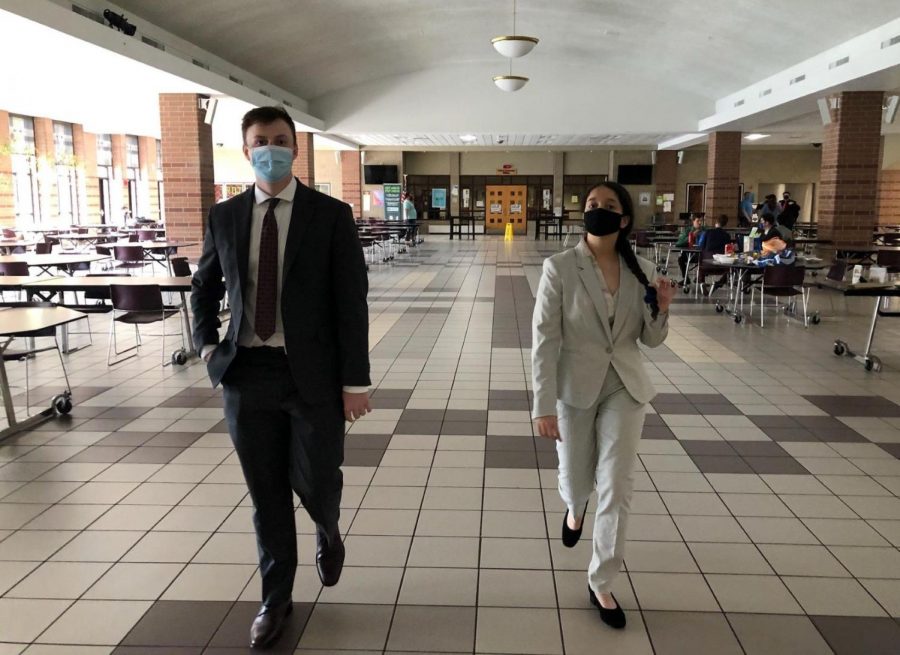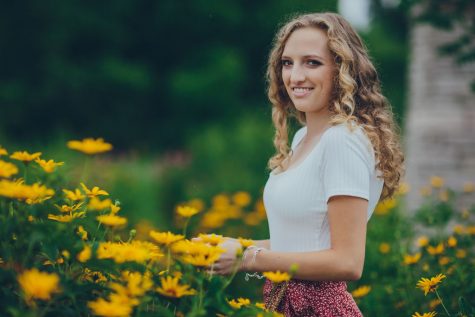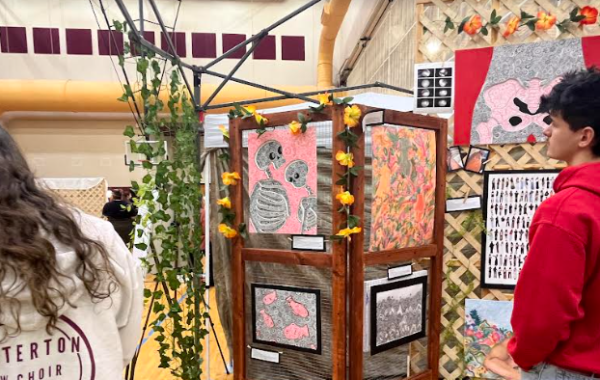Debate Kicks Off Season Virtually
Abnormal conditions cannot stop program from moving forward
October 14, 2020
The Chesterton Debate team is in the midst of preparing for this new and quite different season. Debate is an extracurricular program that involves the research of a certain topic, usually political, that is devised into an argument with sources and “cases” that agree with the competitor’s side of the argument, with the sides typically being affirmative or negative. Competitors perform before judges and try to persuade their judges to agree with their side of the argument. Some events require competing with a partner, and others are individual events.
With the Covid-19 pandemic, the program has been allowed to continue their season as normal with certain changes in how the students will compete.
“Like with most activities, there is a lot of unknown for this year’s speech and debate season. One of the important things that I keep emphasizing to our students is that we are going to be able to still have a season. Our competition schedule normally involves three to sometimes ten hours on a bus and interacting with students from schools around Indiana and at a few select national tournaments students from as far as California, Florida, and New York. That type of travel is obviously not possible in a pandemic. Thankfully, most tournaments are willing to host both debates and speech performances in a virtual setting. While this isn’t as good as normal, we are happy that we can continue to perform at a time that other programs have been unable to,” says head coach, Christopher Lowery, about this year’s season.
The virtual tournaments will work similarly to an in-person tournament. The Chesterton administration has allowed competitors to compete in the school, to allow for interaction between teammates and coaches between performances. Even with the virtual restrictions, the competitors will still compete normally with live competition.
“There are some interesting aspects of virtual meets that we did not think of right away. At our first debate meet of the year, a team from Los Angeles and Pittsburgh attended the event hosted by a school in South Bend and other schools that have already begun entering their students in multiple asynchronous tournaments on the same weekend,” continues Lowery.
The expectations for in-person tournaments this year are slim, seeing as the team had previously tried to compete in one that fell through.
With these changes, Coach Christopher Lowery is unsure of the outcome of the season, “While we normally talk about goals that start with a state championship; the coaching staff has decided to place less focus on the end-competitive result and more on the in-moment experience. Part of this approach for us comes from the fact that last year, our speech team was unable to compete for a state title due to the pandemic. Our team was confident that it was going to win a state title and never got the chance to see it come to fruition.”
Some students who have competed in previous years share their opinions on this year’s season and the new changes to competition.
Junior Mark Jewison says, “Debating online takes some getting used to, but we went into the weekend wanting to get as much out of it as possible and that gave us a great experience.”
Junior Sidney Pittman says, “Debating online is messier in every sense of the word. Between technological issues, internet problems, and constantly switching between tabs, it’s not completely about the debate anymore, but how well you’re able to handle these new obstacles,” about the problems debating online creates.
The program started their season on Saturday, October 10, competing virtually in a tournament hosted by Concord High School. There were fourteen schools competing including with two out of state schools.
In novice Congress, junior Brody Gorski placed fifth, while in varsity Congress, junior Peyton Day placed fourth.
In novice Policy debate, Chesterton took the top three spots with freshmen team Ira Kashyap and Sophia Worden taking first, followed by freshmen Brooke Hansen and Maya Dunkle in second, and sophomores Brayden Blouir and Elias Chambers in third.
In varsity Policy debate, the team of juniors Mark Jewison and Melina Veltri took first, followed by seniors Ethan Dibble and Ryan Donovan in seconds, junior Megan Nowka and sophomore Riley Hawksworth in third, and seniors Gianna Galante and Hattie Hoham in sixth.
In novice Public Forum debate, the freshmen team of Katie Krygoske and Mitchell Miller took fourth, while Chesterton took no spots in the top six in varsity Public Forum debate.
In novice Lincoln Douglas debate, sophomore Katie Pampalone placed fourth, freshmen Megan Wilcox placed fifth, and freshmen Ruth Peschke placed sixth, while in varsity Lincoln Douglas debate, sophomore Gretta Burke took second.
“The start of the tournament was a bit of a struggle as there were a lot of technical problems we had for the first hour. After we worked through the problems at the start, it went pretty smoothly. Overall, I’d say I enjoyed debating online, but it is much different than debating in person,” says sophomore Alexander Fish, about the first tournament of the season.
Their next competition is scheduled for October 17 and is expected to be hosted virtually by Bethany Christian Academy. The Speech team will kick off their season on October 20 with a novice tournament afterschool hosted by Munster High School.



